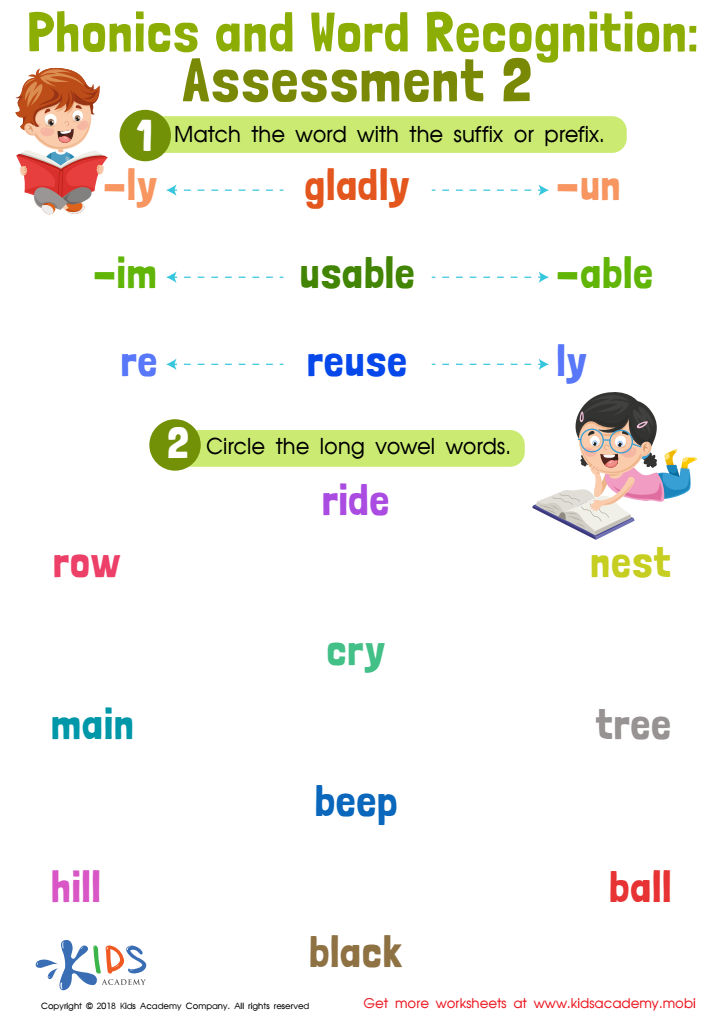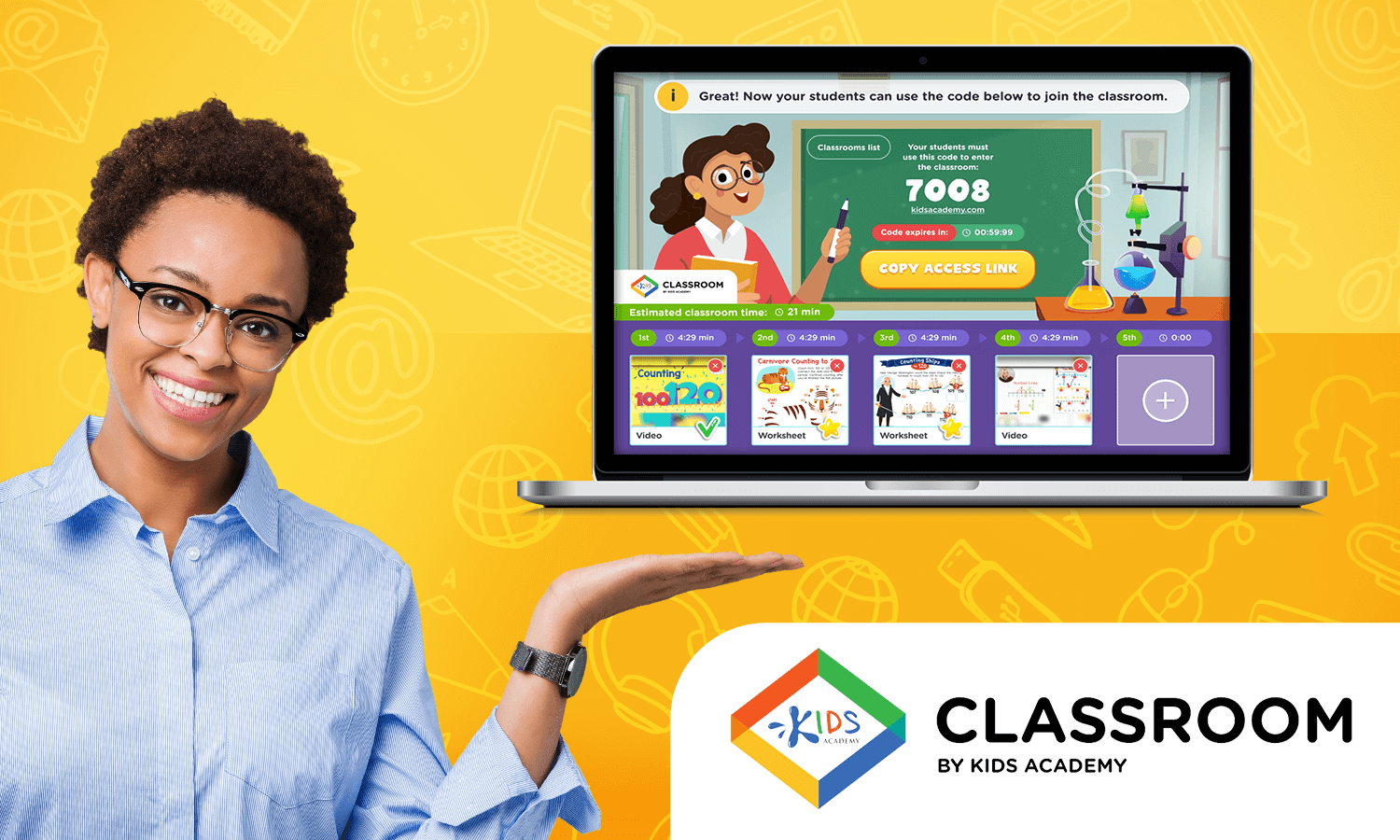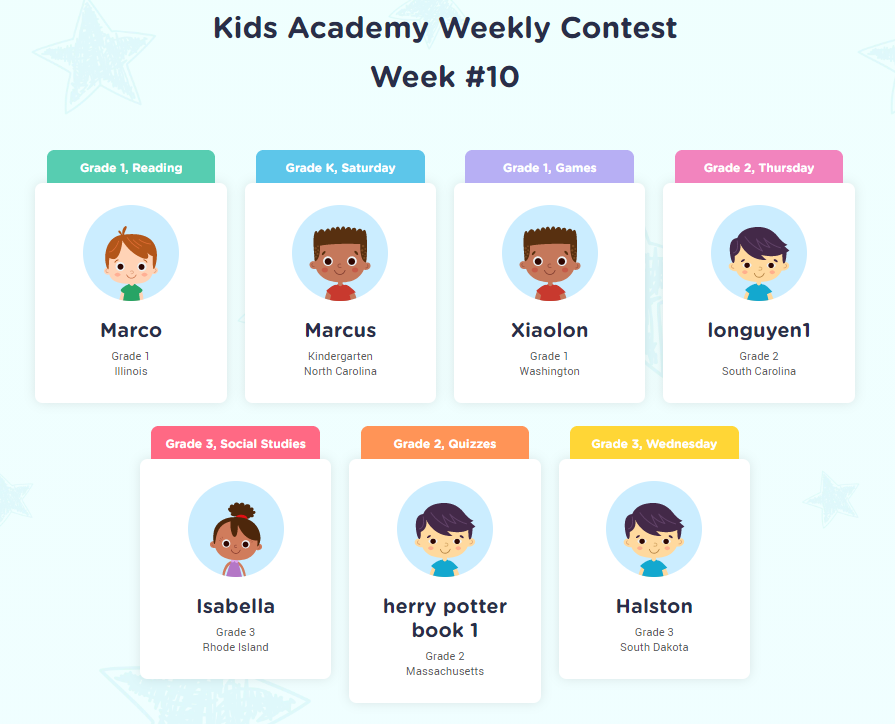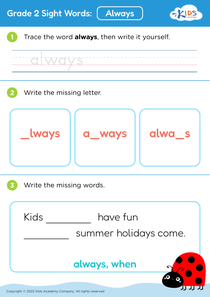Alphabet worksheets activities for Grade 2
2 filtered results
-
From - To


Phonics and Word Recognition: Assessment 2


Phonics and Word Recognition: Assessment 1 Worksheet
Alphabet worksheets activities for Grade 2 are an invaluable tool in the education and development of young learners. At this critical stage, children are not only refining their reading and writing skills but are also expanding their vocabulary and beginning to understand the nuances of language. The use of Alphabet worksheets activities specifically tailored for Grade 2 students supports this journey in several key ways.
Firstly, these activities offer structured learning. By engaging with worksheets, students are given a clear path to follow, allowing for gradual progression. This structure helps build confidence as each completed worksheet provides a sense of accomplishment. Moreover, Alphabet worksheets activities cater to a variety of learning styles. Whether a child is a visual, auditory, or kinesthetic learner, worksheets can be designed to meet their needs, ensuring a more inclusive approach to education.
Secondly, Alphabet worksheets activities for Grade 2 facilitate reinforcement. Learning the alphabet and its applications is foundational, and repeated practice is necessary for mastery. Worksheets provide an excellent means for this repetition, allowing students to reinforce what they’ve learned in class at their own pace. This repetition ensures that the knowledge sticks and becomes second nature, setting a strong foundation for more complex language skills.
Furthermore, these activities encourage independence. As children work through their worksheets, they learn to rely on their own skills and knowledge, fostering a sense of autonomy. This independence in learning not only boosts their confidence but also teaches them valuable study habits that will benefit them throughout their educational journey.
In addition, Alphabet worksheets activities for Grade 2 are adaptable. Teachers can easily tailor them to suit the individual needs of their students, ensuring that each child is challenged appropriately and can achieve their full potential.
In conclusion, Alphabet worksheets activities for Grade 2 are a crucial component of language learning. They provide structure, reinforcement, and the opportunity for independent learning, all while being adaptable to meet the needs of each student. These activities not only support the mastery of the alphabet but also lay the groundwork for a lifetime of successful communication skills.

 Assign to the classroom
Assign to the classroom












